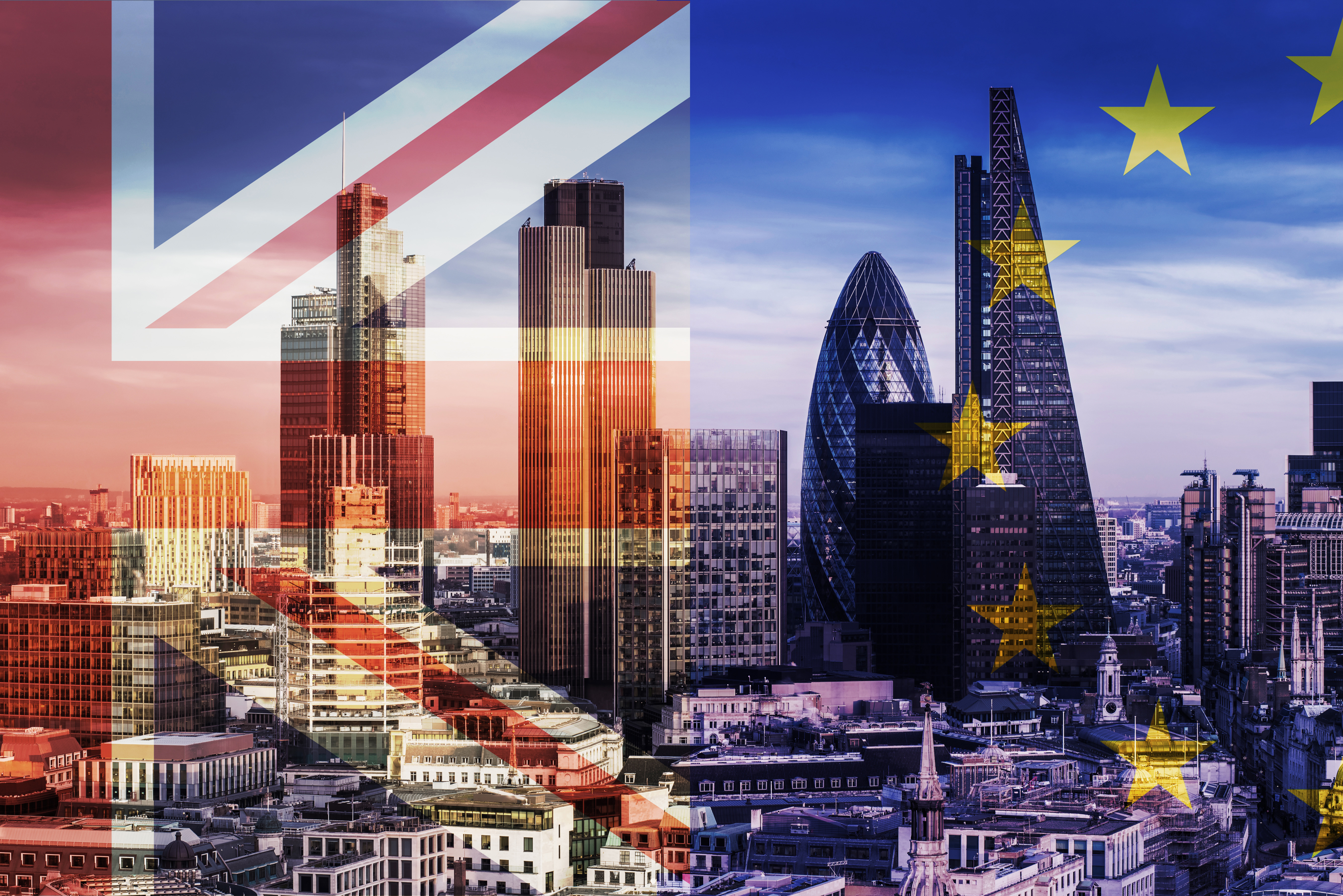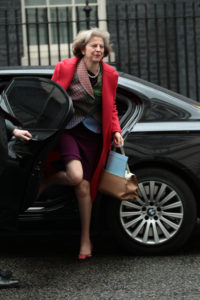
Band to Watch: Glam Skanks Blasts Out Glam Rock on Adam Ant Tour
May 15, 2017
Is Money Killing Music? What the Royalty Battle Means
May 27, 2017Previewing the Brexit Battle: Implications for finance, investments and just about everything else

THIS IS A SNEAK PEAK OF ONE OF THE ARTICLES ON THE NEW DANTE PRINT MAGAZINE FOR JUNE-JULY – PLEASE SUBSCRIBE IF YOU LIKE IT
Our financial expert Kevin Regan, with his own connections and knowledge of the political world, doubles up to look at both sides, now.
Following an inauspicious start to Brexit negotiations, a key initiative that the U.K. may now pursue is to find a way to involve the other 27 EU member states in the discussions.
The question is: how could they do this ?

This article examines the prospects of success for what may be a key option open to the U.K. to pursue with Europe, and what the consequences of the negotiations may mean for the direction of equity, bond and currency markets over the coming months.
The direct consequence of the EU’s opening salvo, the fall-out from the now-infamous dinner at No.10 Downing Street, is for the U.K. to recognise the tactical advantage it gained from this insight into the psyche of the EU. We also see how potentially vulnerable the British position has become.
Come June 8, and assuming the Tory majority is unambiguously sizeable, this will serve to provide the government with an opportunity to plan its next strategic move, relatively unchallenged by domestic opposition if executed straight after the election.
It is what Britain does next which may be the defining element in its negotiations with the EU.
For the majority of the 27 EU member states, it’s all about the money. Jean-Claude Juncker and Michel Barnier achieved immediate cohesion and support from all the member states to back the Commission’s opening position, simply because they all believe it is their best hope of extracting from Britain the biggest, fattest divorce settlement possible.
In this dream scenario, it would obviate the need for the EU to knock on the door of all 27 members in 2019, asking them to cover a perceived U.K. shortfall in the current EU budget period.
 Everyone knows what would happen if the EU took this route. There would be a resounding Non! Nein! or Nie! to any demand for increased contributions from member countries which would be required to bridge any budget gap.
Everyone knows what would happen if the EU took this route. There would be a resounding Non! Nein! or Nie! to any demand for increased contributions from member countries which would be required to bridge any budget gap.
Monsieur Barnier may well quietly accept that he and his team have only a few months to extract an outsized compensation sum from the U.K. before the commission risks seeing member countries breaking ranks and turning on each other.
For its part, the British Government has the ultimate responsibility to both the British people and to the EU, to eschew politics and instead figure out the correct sum of the divorce bill. High or low – whatever that figure is – it must be accurately calculated.
Once established, and with the U.K. believing itself to be very secure over the methodology for arriving at a final compensation offer, this needs to be presented as non-negotiable. The EU is unlikely to consider the offer to be anywhere near sufficient, but that’s when Britain must hold the line – and wait.
If the U.K. weakens its own position, for whatever reason, and ends up overpaying, it will probably make no difference to its chances of obtaining a better deal on other Brexit terms. The EU Commission, France and Germany will need to ensure that the U.K. is made an example of – a proven failed state that had the audacity to leave the EU. We know this because they have said as much.
Eventually, in holding the line on what Britain is prepared to pay, one or more of the 27 members may well decide for domestic political reasons that their own interests are not necessarily being best represented by the EU’s negotiating team. Britain’s position may well be strengthened at this point, but a fall out between a member country and the Commission will have consequences for Britain.
 The unknown factor in this strategy is the yet untested new French President.
The unknown factor in this strategy is the yet untested new French President.
We may know quite soon whether there is a difference between the new French President’s election rhetoric and his actual intent. However, there is a strong possibility that France, Germany and the EU Commission will unite to form a single strong voice in making its Brexit demands. This is likely to be effective in delaying any break in ranks by one or more EU members.
Two of the most vulnerable targets for the EU to focus on will be Britain’s financial service industry, and a renegotiation of the Le Touquet agreement that allows British immigration officers to check passports in Calais.
Here the noose will be tightened and the outcome on both counts, should the EU succeed, will be permanently negative for the U.K.
The EU will probably insist that all current U.K.-based banking and asset management entities, where any business is transacted cross-border with the EU, must shift substantial staffing levels and capital of such operations permanently into one or more EU states.
This process of forced resource reassignment will not stop, and five years from now the financial services landscape in the U.K. will look vastly different. The euro clearing business currently managed in Britain will almost certainly be reduced by a significant extent. The U.K. may not for many years achieve the levels of tax revenue from financial services that it enjoyed during the peak revenue periods before 2017/18.
British-based financial businesses will go reluctantly. I know all the financial centres across the EU very well and none can offer the quality of living that London provides for relatively highly paid financial professionals. It is interesting that the large international banks that have this past year been seeking a new EU base to relocate what may be quite high numbers of staff and other resources have, following extensive searches, usually settled on Frankfurt, Dublin, Luxembourg, Amsterdam, or Paris. Each of these cities may struggle with basic demands on housing, schools, culture and transport.
Ultimately however, the U.K. will adjust and what we lose in asset management or banking revenues we may well gain in tech services and other industries. Meanwhile, the U.K. and its finance professionals will not take kindly to losing a chunk of its highly lucrative financial services industry.
The border move, should it happen as President Macron promised during his election campaign, may be seen as an existential fight by the U.K., but is something which is in its power to control.
If the current border agreement between the U.K. and France were to be forced to move back to the U.K., Britain would fear it would be overwhelmed with a surge in migrants claiming asylum. The sheer numbers of people potentially surging through France (unhindered?) towards the U.K. could be truly significant. France needs to understand that this would be a fight that the U.K. believes it could not afford to lose.
Establishing the right divorce settlement will anchor all other discussions. If the U.K. can prove throughout the whole negotiation period that its offer is fair (and it needs to be in order to be credible) then all other issues will be settled in the end. Once financial arrangements are sorted and the offer is anchored, all other issues for negotiation will eventually be agreed upon.
For financial markets, what does this all mean? Geopolitical events rarely set new directions in any given market sector unless the fundamental economic and monetary conditions change as a consequence.
The FTSE 100 rally since last June is in part explained by a weaker pound, making foreign earnings much higher in sterling reporting terms; and the FTSE 250 which has also risen strongly can be attributed to the continuing resilience of the U.K. economy.
Given where British equity markets are today as a result of this broad stock market surge, they are that much more expensive. Rather than be confident that the main indices will continue to rise, I would instead urge investors to take expert advice and analyse specific U.K. stock opportunities, by favoured industry and by company. There are still some compelling businesses out there and dividend yields remain relatively attractive.

Within Europe it is generally agreed that there is great value to be found across the board in equity markets. With economic output ticking up and global investment funds generally being underweight for Europe so far this year, taking broad exposure through selected equity funds may be a good bet for interested investors. I certainly have increased my exposure to European equities this year.
Please beware though, nothing is a one-way bet and all investments, especially in equity markets, are potentially risky, as there is always the possibility of an unexpected and rapid market correction. As regular readers will know from my previous columns, I am a great believer in value investing; real companies with strong balance sheet and stock metrics. While such stocks may go down during a sharp “correction”, they are most likely to eventually fully recover.
As for currencies, I always believed sterling was oversold when down at 1.21-1.24 late last year and early in 2017, and have regularly commented on this in DANTE. Now that we are back close to 1.30 vs. the U.S. dollar and 1.20 vs the euro, it is far closer to fair value and given the bitter Brexit discussions about to ensue, at these levels I have a neutral view on sterling.
I retain a neutral to positive view on further euro currency appreciation, owing to the higher likelihood of the ECB gradually raising euro interest rates from here as early as June 2017.
Government bond yields will likely remain low, save the perennial risk that an unexpected event occurs and a spotlight is shone on highly indebted nations, leading markets to once more become concerned over debt levels being so high, and this debt may never likely be paid back.

Tourists outside the gate of Downing Street in London
Given low levels of return for global government bond yields, I haven’t held any bonds in my own portfolio for many years. I will continue to hold gold and palladium as a hedge against something nasty happening in global government bond markets. My opportunity cost? Well, if global government bonds are only yielding 1-2% per annum, I’m not missing much.
Financial services aside, in the end there will probably be a Brexit agreement. We will all be taken to the edge of reason and brinkmanship – and as usual, many summer holidays will likely be disrupted as border delays will be inevitable.
The divorce settlement, citizens’ rights, trade, status of the European Court of Justice and so on will all be agreed, and just as in the period following World War II, Britain and Europe will repair their differences with bitter memories fading and life continuing.
The U.K. will win back the freedoms that have gradually been surrendered to the EU over decades. Only through hard work and deft negotiation will the U.K., Europe and the rest of the world avoid a lose-lose outcome.
In time, Europe will learn to work well and trade with the U.K.; hopefully Europe as a whole will significantly increase trade with the rest of the world. We should expect a corresponding demand from many of these countries for the U.K. and Europe to grant work and residence visas to them in their tens of thousands (India and China likely topping the list).
Globalisation cannot be stopped – we must accept it and keep cutting trade deals.
So what happens with the EU of the future?
Eventually it will reform. The not-so-democratic EU leaders may be replaced by pragmatic, more flexible leadership. There may even be some kind of democratic framework established within the EU Commission.
The U.K. and Europe will work together to rebuild a strong European economy – stronger than the one we have now.
Brexit may be the key that opens the door for real democracy and fairness inside the EU. What Britain began, it is now down to our continental European friends to finish, for the sake of their own futures.
Kevin Regan is Managing Director of Realworld Capital. Information: www.realworldcap.com

- We are a media group independent of large companies and political interests. Opinion expressed by contributors are their own and do not necessarily reflect those of the magazine.



